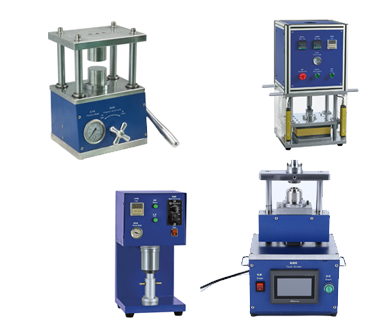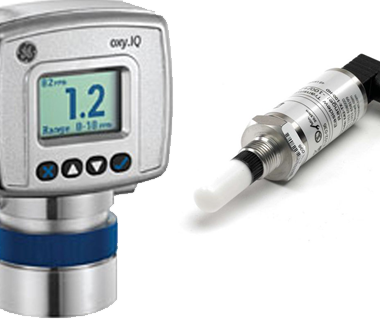Environment, Health and Safety Manual – Chapter 04.05: Fire Safety – Egress and Life Safety Policy
Title
Environment, Health and Safety Manual – Chapter 04.05: Fire Safety – Egress and Life Safety Policy
Introduction
The University of North Carolina at Chapel Hill and its Department of Environment, Health and Safety (EHS) are committed to the health and safety of its students, faculty, staff and visitors. It is therefore critical that the means of egress in University buildings be maintained and unobstructed to ensure safe emergency evacuation of occupants, as well as allow access for emergency responders. Implementation of this policy will be preceded by egress safety education and followed by Workplace Safety Committee review. When other avenues have been exhausted, this policy authorizes the Campus Fire Marshal in EHS to expedite the clearing of hallways, stairways, exits and other critical areas to maintain egress and life safety.
Egress and Life Safety Standards
Exit accesses and discharges must be free from obstructions or impediments to full instant use in case of a fire or other emergency. Unobstructed hallways, stairwells and exits are necessary to provide access for emergency responders in a medical, fire or other emergency, including access to fire panels and building utilities. The North Carolina Fire Prevention Code1 prohibits the use of an exit for any purpose that interferes with its function as a means of egress, and requires that passageways be unobstructed. Further, U.S. Occupational Health and Safety Administration law, adopted by reference in North Carolina, states that, “Exit routes must be free and unobstructed. No materials or equipment may be placed, either permanently or temporarily, within the exit route” (Title 29 of the Code of Federal Regulations, Section 1910.37(a)(3)). To comply with these laws and provide safe buildings, University policy prohibits the storage of items – even on a temporary basis – in hallways, mechanical rooms, building common areas, paths of egress identified by “EXIT” signs, aisles which lead to exits, or loading dock areas in the immediate vicinity of an exit. Areas that may be used for evacuation must be kept clear at all times. The areas described above may never be used for the purpose of storage of tables, chairs, bookcases, or any kind of furniture or equipment. Minimum aisles widths, exits, and dedicated aisles must be maintained. These restrictions apply to all items, including those to be surplused or disposed of. See Chapter 4 of the UNC-Chapel Hill Environment, Health and Safety manual for detailed university policies on Life Safety – Exitways. This policy gives the Campus Fire Marshal authority to implement that policy and enforce fire prevention codes.
1Depending on the situation, other laws and standards may apply to ensure the safety of occupants in University buildings during an emergency situation, including the codes and regulations found in the National Fire Protection Agency and the International Fire Code, as well as existing University health and safety policies. In most cases, codes require hallways and exitways to remain completely clear as built. For example, a 96 inch wide hallway in a health care facility must be free of all obstacles. In other cases, passage widths must be no less than 48-36 inches, depending on use and the occupant load.
Responsibility for Safe Egress
Students, faculty, staff and contractors are responsible for following University procedures to maintain safe hallways, stairways and exits. EHS provides the following instructions to students, faculty, staff and contractors:
- Do not place any items in hallways, stairwell and exitways. Working items (e.g., tables, file cabinets, refrigerators, freezers, coffee makers, etc.) may not be placed in a hallway.
- You are responsible for placing any recyclable item directly in its proper recycling collection container.
- Do not place items to be surplused in hallways. For items eligible for surplus, complete a P-110 “Surplus Property Receipt,” send it to the Surplus Property Warehouse, then call the Housekeeping Moving Crew (919-962-0662) to schedule a pickup. Many departments assign administrative staff the responsibility to complete the P-110 form.
- For an office supply or another type of consumable item to be disposed of, put a note on it that says “trash” and contact your housekeeper or housekeeping supervisor. Request housekeeping services.
- Hazardous materials must be removed from laboratory equipment, and a Safety Clearance Form must be attached to the equipment. Contact Facility Services to remove Freon from freezers and refrigerators that contained hazardous materials. Housekeepers, movers and surplus property staff will not handle laboratory equipment without an attached Safety Clearance Form.
- Contact EHS if you have a question about maintaining safe hallways, stairwells and exits.
Fire Marshal Education, Approval and Enforcement
The Campus Fire Marshal will work cooperatively with building occupants to ensure safe and compliant hallways, stairways and exits.
Egress Safety Education
For one month (or more, if necessary) prior to implementing the below enforcement procedure in any UNC building the Campus Fire Marshal will conduct an egress safety education campaign for building occupants. Building occupants will learn egress standards and university procedures for recycling, disposal and surplus property. The egress safety education campaign will include:
- Handouts, posters and/or meetings to educate building occupants on standards for keeping exit accesses and discharges free of obstructions or impediments.
- The Campus Fire Marshal will evaluate hallways, stairwells and loading docks and inform building occupants of specific items that do not meet egress safety standards.
- EHS staff will work with building occupants to schedule and conduct a “Cleaning for Safe Hallways” day.
- EHS staff will facilitate the disposal and surplusing of unwanted items.
Enforcement Procedure for Unapproved Items
For each unapproved item, the Campus Fire Marshal will use all reasonable means to work with the item’s owner, owner’s department or building manager to resolve egress violations. When all reasonable avenues have been exhausted and the owner cannot be found or has not taken action, the Campus Fire Marshal will:
- Tag items in violation with a notice. The tag will note the date of notice and include information on the University Egress and Life Safety Policy and instructions for Surplus and disposal. The tag will also warn that, “The Campus Fire Marshal has initiated steps to remove or dispose of this item in two weeks from the date of this notice.”
- Give a copy of the tag to the item’s owner or, if the owner cannot be found, the department that is responsible for the item.
- Take ownership of the item and proceed with steps for disposal or sending it to Surplus Property, including completion of the P-110 form. Under this policy, pickup will not require a department signature for P-110 forms completed by the Campus Fire Marshal.
When all reasonable avenues have been exhausted and the owner has not taken action, the Campus Fire Marshal has the authority to send working items to Surplus.
Workplace Safety Committee Review
The Campus Fire Marshal will keep records of policy implementation, buildings subject to this policy, approvals and enforcement actions taken, and will report annually (or more frequently, if necessary) on these activities to the UNC Laboratory and Chemical Safety Committee (for laboratory buildings) and UNC Hazards Management Committee (for non-laboratory buildings). The Committees will provide feedback and guidance to the Campus Fire Marshal on the implementation of this policy.
THIS ITEM MUST BE MOVED IMMEDIATELY
For more information, contact:
Campus Fire Marshal (919-962-5507)Department of Environment, Health & SafetyDate of Notice:Building:Floor:
The Campus Fire Marshal has determined that the location of this item endangers egress and violates North Carolina Fire Prevention Code. According to the UNC Egress and Life Safety policy, this item must immediately be moved to a place where it does not endanger egress or emergency access, or block an exit. This item cannot be stored in a hallway or stairwell. The Campus Fire Marshal has initiated steps to remove or dispose of this item in two weeks from the date of this notice. For information on fire code requirements for safe storage and egress, contact the Campus Fire Marshal at 919-962-5507.
You are responsible for placing any recyclable item in its proper recycling collection container. If this is an office supply or another type of consumable item to be disposed of, put a note on it that says “trash” and contact your housekeeper or housekeeping supervisor. Request housekeeping services.
All other non-consumable items should be sent to Surplus.
Hazardous materials must be removed from laboratory equipment, and a Safety Clearance Form for Surplus Property (call 919-962-5507 for an orange sticker) must be attached to the equipment. Contact Facility Services to remove Freon from freezers and refrigerators that contained hazardous materials. Housekeepers, movers and surplus property staff will not handle laboratory equipment without an attached Safety Clearance Form.
Please contact the Campus Fire Marshal at 919-962-5507 if you have any questions.
Contact Information
Policy Contact
Environment, Health and Safety
1120 Estes Drive
Campus Box #1650
Chapel Hill, NC 27599-1650
Phone: 919-962-5507





